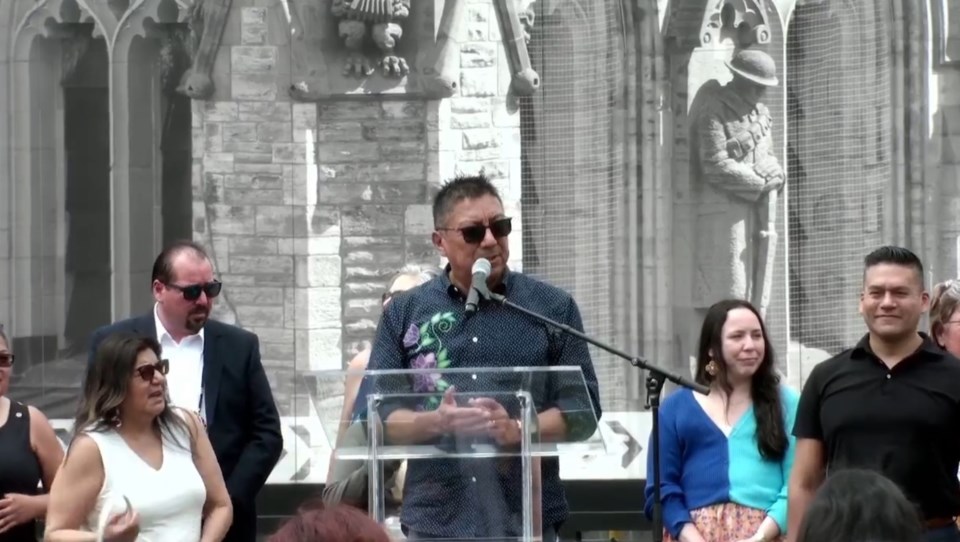ONIGAMING – Chief Jeffrey Copenace wasn’t in Ottawa Tuesday for a rally against Bill C-5, but he was following its progress.
“The Ojibways of Onigaming, we've been very clear to both the federal government as well as to the provincial government that we have concerns about Bill 5 as well as C-5,” Copenace said in a phone interview.
The provincial Bill 5 passed in the legislature and received royal assent earlier this month against strong objections and protests from First Nations across Ontario. It enables the Ontario cabinet to create “special economic zones” for speedy approval of mines and other projects.
Bill C-5, the One Canadian Economy Act, is in federal Parliament and would grant the federal cabinet authority to designate infrastructure projects “in the national interest” for quick approval.
Copenace said his First Nation near Nestor Falls has told both governments their legislation is “going to impact us in negative ways and that we're already a community that's in a state of emergency.
With the problems Onigaming is facing, “we're simply not in a position to have the capacity to engage or negotiate on some of these projects in good faith,” he said.
“The reality is that we faced 43 deaths so far in our community over the course of the past three and a half years, and the state of emergency seems like it's getting worse. It doesn't seem like it's improving.
“And we're worried that as we're struggling to keep people alive, and unable to negotiate in good faith or to come to the table in good faith for these projects … (Ottawa and Ontario are) going to move forward and leave us behind.
“We're worried that these bills trample on constitutionally protected rights, particularly our treaty rights – our title rights, our title to the land and to the waters, and our treaty rights to a livelihood that includes harvesting, fishing and hunting.”
Copenace said he’s concerned that “if these projects go ahead without our involvement, we will remain the poorest of the poor while Canada and Ontario continues to prosper at our expense.”
Organized by Chiefs of Ontario, Tuesday’s rally against Bill C-5 in Ottawa drew hundreds to the Parliament grounds and included Nishnawbe Aski Nation Grand Chief Alvin Fiddler among its speakers.
“We are here today to tell Mark Carney and his government that if you pass this bill … it will be a long, hot summer,” Fiddler told the rally.
First Nations “will not sit idly by” and let government take whatever it wants, he said.
Bill C-5, which received first reading in the House of Commons on June 6, has two parts.
Part 1, relatively uncontroversial, is about removing barriers to interprovincial trade and labour mobility.
The second part, titled the Building Canada Act, aims to fast-track infrastructure projects “in the interests of Canada’s economy, sovereignty and security, including its energy security.”
On June 14, the Chiefs of Ontario Leadership Council passed a resolution against the bill and the process being used to pass it through Parliament.
“First Nations are not opposed to development. We want to build and we want to partner. But we cannot accept a law that can remove us from the consultation process,” Ontario Regional Chief Abram Benedict said in a news release issued that day.
“We were not properly consulted before the bill was tabled, and we have been excluded throughout its study. These decisions are being made about our lands, our rights and our future.”
